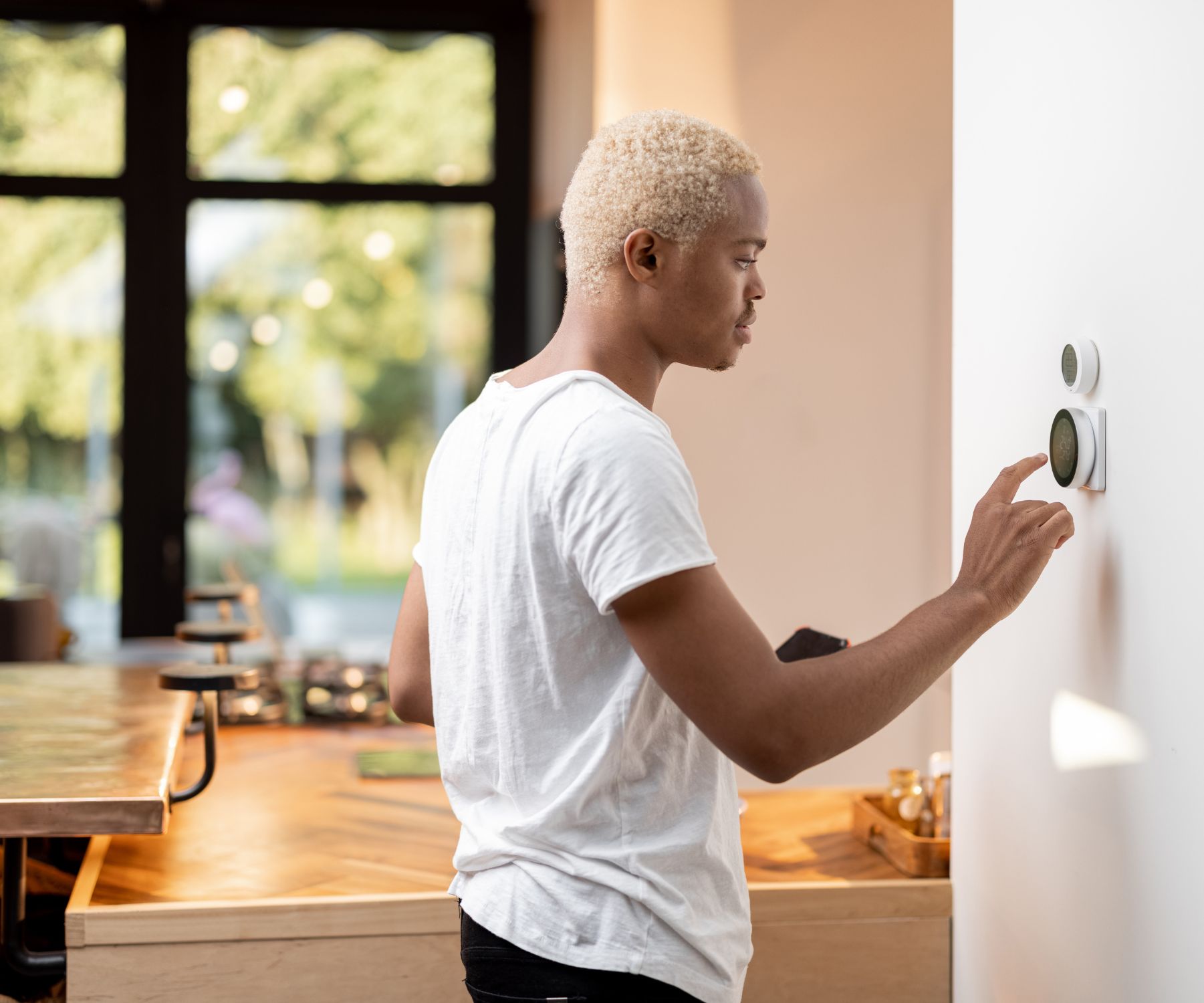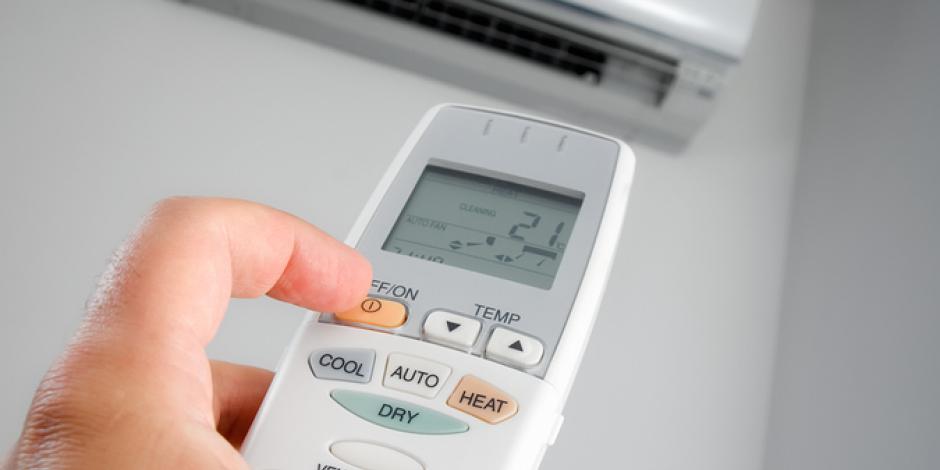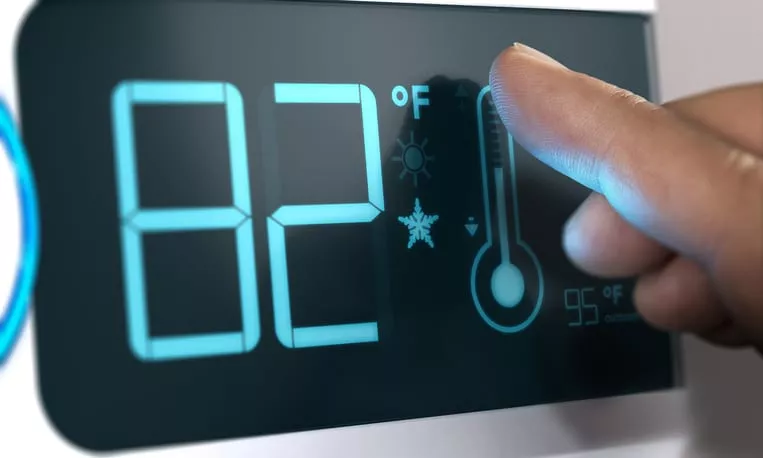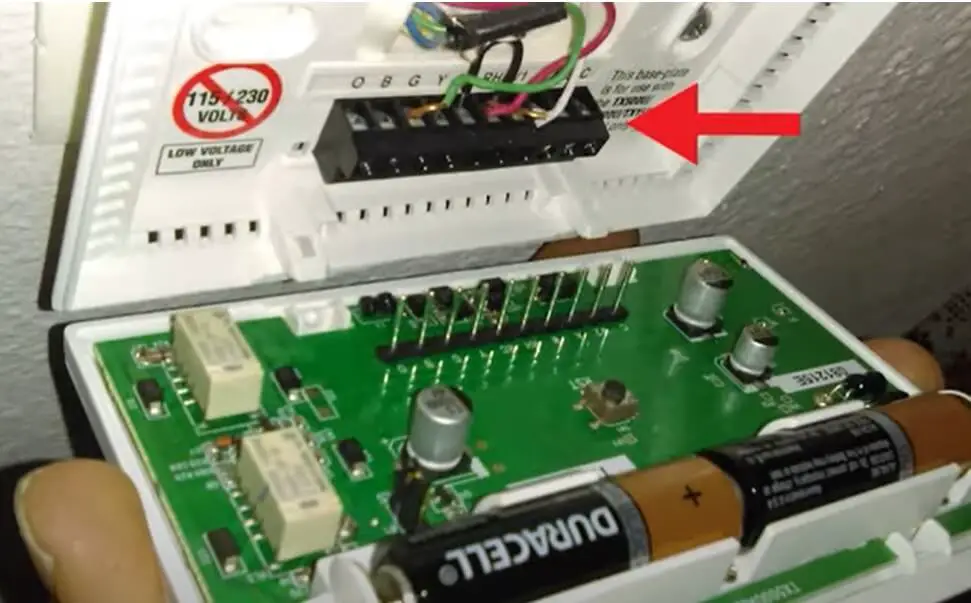Is it bad to keep turning AC on and off? Yes, it is. Many people believe that turning their AC on and off frequently saves them money and energy. However, this is a common misconception that can lead to higher energy bills and increased wear and tear on your AC unit.
In this blog post, we will explore the impact of turning your AC on and off on both your wallet and your air conditioning unit. We will discuss the energy efficiency of your AC unit, the cost of running it continuously, and the potential damage that can occur from frequent cycling.
We will also provide tips for optimizing your AC usage to save money and prolong the lifespan of your unit. So whether you are trying to save money on your utility bills or want to ensure the longevity of your AC unit, this post will provide valuable insights and practical advice.
Let’s dive in and learn more about the impact of turning your AC on and off, and how to make the most of your cooling system for your wallet and your comfort.

Is It Bad to Keep Turning AC On And Off? The Truth Behind It
Turning an air conditioner on and off frequently can be bad for it. When you turn the unit off, all of the components must cool down before restarting, which puts a lot of stress on the compressor and motor. Additionally, sudden temperature changes can cause condensation to form in areas that don’t usually get wet or damp, leading to mold growth.
Turning an AC on and off also causes more wear and tear than leaving it running steadily so it may not last as long as if left running constantly. It is best to keep your air conditioner running continuously if possible rather than turning it off and then back on again later.
It’s not a good idea to keep turning your air conditioner on and off throughout the day. Doing so increases stress on components like the compressor, which can lead to premature failure and costly repairs. Additionally, constantly cycling the AC will decrease its energy efficiency over time, resulting in higher electricity bills.
To get the most out of your air conditioning system while still saving money, use a programmable thermostat that allows you to set it for specific times and temperatures when you’re away or asleep.
Is It Okay to Turn on And off Ac Frequently?
When it comes to air conditioning, many people assume that it is best to keep the system running continuously. However, this isn’t necessarily true as turning off and on your AC frequently can actually be beneficial in certain circumstances.
Turning off the AC when leaving a room or area for an extended period of time will help save energy costs by not cooling an empty space.
In addition, frequent use of air conditioning can lead to wear on parts due to strain from constantly cycling on and off. Allowing your unit some time to rest between uses helps reduce the stress placed upon components such as fans and motors which extends their lifetime and efficiency levels over time.
Even if you are home, setting a timer so that the AC turns itself off after a predetermined amount of time allows for energy savings while still providing comfort during occupied hours.
Although there are benefits associated with turning off your AC at times, make sure not to leave it turned completely off for long stretches of time as this could result in mold growth inside ductwork or other parts of the HVAC system due to excess humidity buildup when no cold air is being circulated throughout the house.

Does Turning Ac on And Off Ruin It?
No, turning your AC on and off is not likely to ruin it. In fact, in certain circumstances, the frequent cycling of your air conditioner can actually help prevent damage from occurring.
The key here is that you want to make sure your AC has time to reach its full cooling capacity before shutting it down as this will ensure that all components are working properly and efficiently.
Additionally, if you have a thermostat set up with a timer function or other features like an energy-saving mode, you may be able to avoid wasting energy by scheduling the times when your AC turns on and off throughout the day.
Does Turning the Ac on And off Raise the Bill?
When it comes to your air conditioning unit, you may be wondering if turning the AC on and off will raise your energy bill. The answer is yes, but not as much as you might think.
By only using the air conditioner when absolutely necessary – such as during periods of extreme heat – you can save yourself money in the long run.
If you turn off your AC while sleeping or while away from home for an extended period of time, this will also help reduce energy usage and keep costs down. Additionally, setting a higher temperature when leaving your house for a few hours or overnight can help lower bills without sacrificing comfort upon returning home.
However, if you are regularly switching off the AC and then back on again within short intervals throughout the day, this could actually increase costs due to more frequent use of energy.
To avoid high bills in this case it’s best to leave it running at a consistent level until needed elsewhere in the house or turned off completely for longer periods of time.
How Many Times Should Ac Turn On And Off?
The frequency of your air conditioner being turned on and off largely depends on the climate where you live. In general, it is recommended that AC units be used sparingly so as to not waste energy while also ensuring that the room stays at a comfortable temperature. If you live in an area with hot summers, then it may be necessary to run your AC more often than if you lived in a cooler climate.
Generally speaking, most experts suggest running your AC unit for 15 minutes at a time when temperatures reach 80 degrees Fahrenheit or higher; this will allow for consistent cooling without overworking the system.
Additionally, if the temperature is around 75-80 degrees Fahrenheit and there’s humidity present, turning the AC on for 15 minutes every two hours can help keep moisture levels low and provide comfort during muggy days.
Ultimately, how many times your AC should turn on and off really comes down to personal preference as well as environmental factors like humidity level and outside air temperature.

Does Turning the Ac on And off Cost More?
Turning your air conditioner on and off may not actually cost you more money than leaving it running. The main issue is the amount of time it takes to cool down or heat up a room once you turn on the AC, which can cause the unit to use more energy in a shorter period of time.
On hot days, when temperatures are high outside, an AC unit that has been turned off for hours will require much more energy to bring down indoor temperatures quickly compared with one left running all day.
For this reason, experts generally advise keeping your air conditioner running throughout the summer months in order to save money on cooling costs.
Ac Turning on And off Frequently
A common issue that many air conditioners experience is turning on and off frequently. This can be caused by a variety of factors, such as a dirty filter, blocked vents, low refrigerant levels, or even worn-out parts.
If the wire of the thermostat is torn out or a loose connection, it may cause the AC to turn on and off frequently. You have to pull open the thermostat and check the connections and fix if you found any loose connections to fix this problem.

If your AC unit is cycling too often, it’s important to get it checked out right away in order to avoid any further damage or energy waste.
A qualified HVAC technician can diagnose the problem and provide you with reliable solutions to help restore your system back to its optimal performance level.
Turning AC On and Off vs Leaving It On
When considering whether to turn your air conditioner on and off or leave it on, it is important to consider both the energy efficiency and the overall longevity of your unit.
Turning your air conditioner on and off frequently can cause it to work harder and use more energy. However, leaving it on constantly can also lead to unnecessary wear and tear on the unit, decreasing its lifespan.
It is recommended to use a programmable thermostat to set your desired temperature and allow the unit to operate consistently.
Additionally, regular maintenance and cleaning of the unit can help to ensure its optimal performance and efficiency.
When Should I Turn Off My Air Conditioner?
If you’re looking to save money on your energy bills, it’s important to know when to turn off your air conditioner.
Generally speaking, if the temperature outside is lower than the temperature inside your home, then it’s time to turn off your air conditioner and open up some windows instead.
Doing this will help reduce strain on both your wallet and the environment!
Should You Turn Off Your AC When You Leave for Vacation?
Leaving your air conditioning on while you’re away for vacation may seem like a good idea to keep the house at a comfortable temperature, but it can actually cost you more money in energy bills. Turning off the AC when leaving for vacation will help save energy and reduce your monthly bill.
Additionally, if you are gone for an extended period of time, turning off the AC will also prevent any potential problems from arising due to excess humidity or other issues that could occur with prolonged use of air conditioning units.
Is It Bad to Turn AC Off in Summer?
Turning off the air conditioner in hot temperatures may be tempting, but it is not recommended. During summer months, especially if you live in a warmer climate, temperatures can reach extremely high levels and without an AC running to cool down your home, you could put yourself at risk for heat-related illnesses such as dehydration or exhaustion.
Additionally, leaving your AC on will help keep humidity levels low which can prevent mold growth from occurring within your home.
Does Turning AC On And Off Cost More on Reddit?
Turning an air conditioner on and off can cost more in the long term. Although you may be able to save money by periodically turning it off, the frequent start-up uses more energy than if it were left running all day.
Additionally, when the AC system is turned off for too long, dust and dirt that have settled in the unit need to work harder to cool down a warm room once it comes back on again.
Therefore, while occasional use of this method might offer short-term savings, leaving your AC running consistently throughout hot days will likely result in greater energy efficiency over time.
Switch off Ac When Not in Use
It is important to switch off your air conditioner when it is not in use, as this will help you save energy and money. Not only does switching off the AC conserve electricity, but it also helps prevent unnecessary wear and tear on its components.
Additionally, turning off the unit when you are away from home for an extended period of time can help protect your home from power outages.
Lastly, shutting down your AC during peak energy hours can reduce strain on the overall power grid and help keep utility costs lower for everyone.
Is It More Efficient to Run Ac at Night?
Running an air conditioner at night is generally more efficient than running it during the day. During the night, temperatures outside are typically cooler, so your AC does not have to work as hard to cool down the home and keep it comfortable.
Additionally, nighttime electricity rates are usually lower than daytime rates in many areas, enabling you to save money on your energy bills.
Conclusion
In conclusion, it is not bad to periodically turn off and on your air conditioner. This can actually save you money in energy costs as the AC will not have to work overly hard to cool down a hot room. Make sure that when you do turn off your AC, all windows and doors are closed so that no warm air can enter the house.
If done correctly, turning off and on your AC should be a harmless process with only positive results!